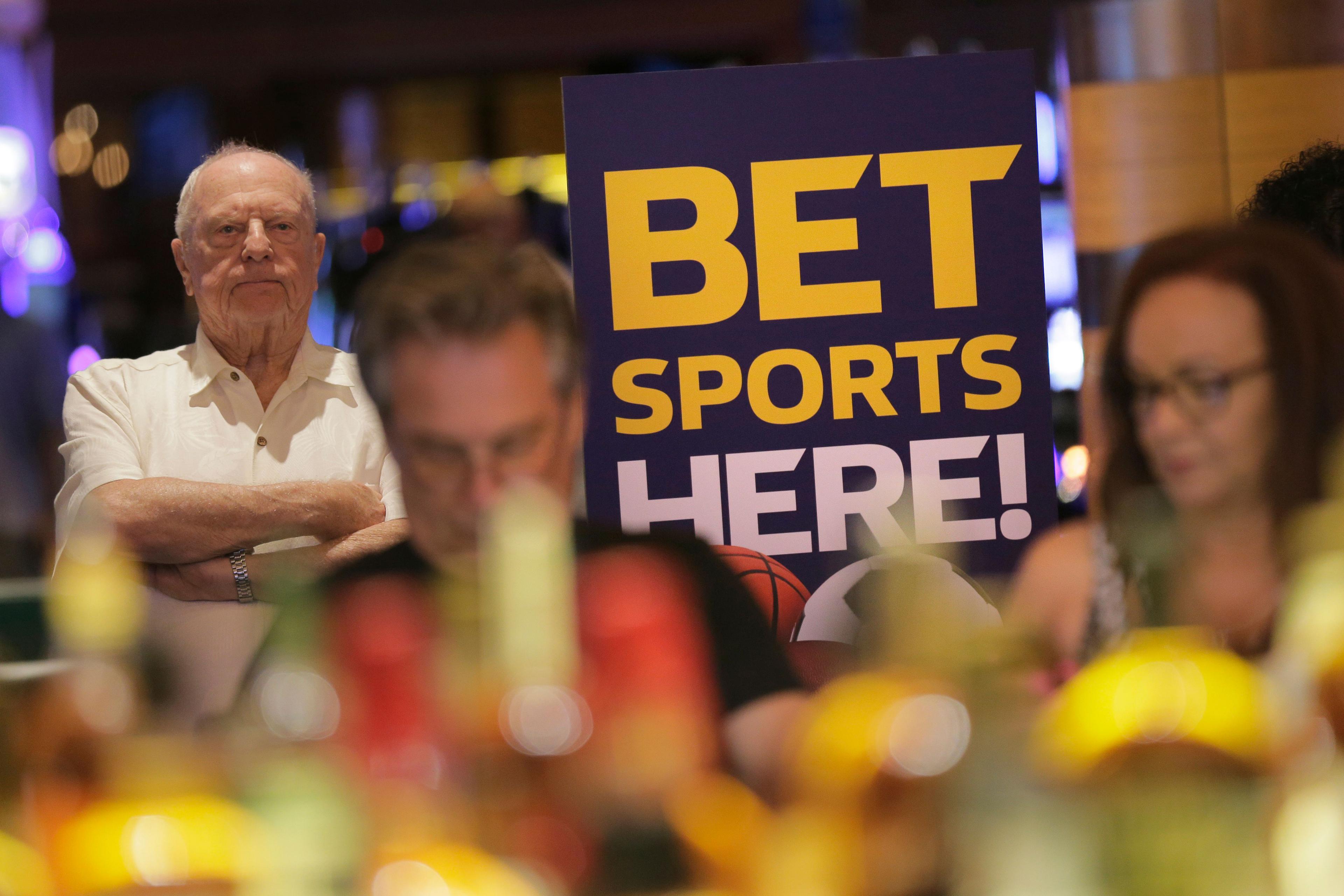

Since the U.S. Supreme Court found that states could allow sports betting, everyone seemingly wants a piece of the action. State lawmakers, casinos, race tracks, and fantasy sports companies are staking their territory on an estimated $150 billion industry.
At The Celtic bar in downtown Denver, owner Noel Hickey, mused about the possibilities of customers placing bets on the sports they watch there. The Celtic already has off-track betting for horse races.
“You know it would be great if we could manage to get the sports book in as well and just add to everything we’ve already done,” Hickey said.
Now the buzzkill.
David Farahi, who runs Monarch Casino in Black Hawk and is president of the Colorado Gaming Association, said everyone is trying to get their mitts into the sports betting cookie jar.
“What I can tell you, most people don’t understand, is that that cookie jar is not filled with giant cookies, it’s filled with crumbs,” he said.

Farahi spoke from Monarch’s flagship Reno, Nevada casino, where he currently operates a sports book. He can easily see a sports book at his Black Hawk, Colorado operation too. It’ll add much needed revenue growth for the state’s casinos. He also knows firsthand that profit margins are extremely low in sports gambling, less than 5 percent.
“And so that will, I think, temper people’s appetite for a huge fight,” Farahi said.
The different gaming factions in Colorado have not played nice in the past. In 2014, casinos beat back an effort by Mile High Racing & Entertainment, which runs the state’s only horse track, to expanding gaming at race tracks outside the mountain towns. It was one of the most expensive political battles in state history, more than $36 million raised between both sides.
The operator of the track did not respond to repeated requests for comment.
That kind of “super confusing, super messy, super expensive” fight is what Democratic State Rep. Alec Garnett hopes to avoid this upcoming legislative session. Garnett already submitted a bill title for the upcoming legislative session.
“I think the best way is to come together, let’s figure out what we believe is the right balance, and go ask voters, ‘do we think this is going to work?’” he said.
Voters approved Colorado casinos through an amendment to the state constitution 25 years ago, allowing gaming in only three historic mining towns: Blackhawk, Central City, and Cripple Creek.
Some believe sports gambling can be allowed without voter approval. Colorado’s Attorney General will soon weigh in with a formal opinion.
Still, Rep. Cole Wist, a state house Republican, and a few others think a voter referendum is likely. Especially if you’re talking about expanding beyond the three mountain towns and using today’s technology.
“The question of a mobile interface may give rise to a related question about whether or not that’s truly consistent with the language of the constitutional amendment.”

Mobile betting is no small idea. Nevada already has apps for making sports wagers, and illegal offshore betting is happening online all over the country. In current tech environment mobile bets make sense, Rep. Garnett said.
“If something happens on Sunday morning, a weather system moves in and the Broncos are going to be playing in 6 inches of snow, the line’s going to move,” Garnett pointed out. “It would be unrealistic to expect somebody to drive up to Black Hawk or Central City and change that bet that they made a couple of days before.”
If lawmakers decide to take this up next January and two-thirds agree that a measure should go on ballot, then voters could make the final call in November 2019. There’s still a lot of ifs and machinations beyond just what happens at the Capitol.
Tom Downey, a regulatory attorney with Ireland Stapleton who’s worked at the state and local level on all the state’s licensed vices (liquor, marijuana and gaming), said referred measures are more likely to pass. There’s a higher bar now however for constitutional amendments, so it must get 55 percent of the vote.
Then there will be the rulemaking “to fill in the details and get it up and running,” Downey said. “Lightning speed would be January 1st of 2020.”
That’s assuming there aren’t a host of legal challenges that delay the first bets even longer, if for example, one faction, whether tracks or casinos gets left out.
New Jersey and Delaware are already up and running, but Monarch Casino’s David Farahi is in no rush.
“Colorado not being first is probably advantageous for Colorado” he said, noting that Pennsylvania’s recently passed gambling legislation is a bit of a mess. He doesn't think many operators will choose the state as a result.
Most people agree — as opposed to what happened with marijuana — Colorado can actually learn from the mistakes of other states.









